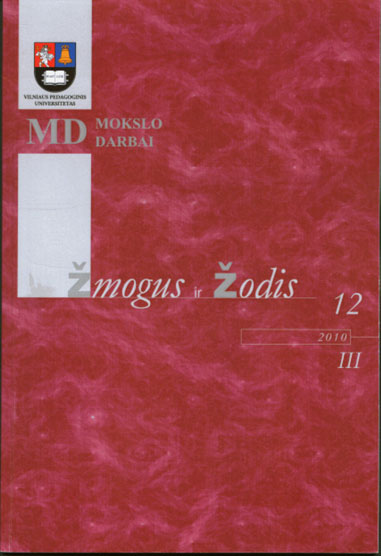Zur epistemischen Lesart der Modalverben im Sprachgebrauch des Deutschen
On Epistemic Characteristics of Modal Verbs in Use of German
Author(s): Gražina DroessigerSubject(s): Foreign languages learning
Published by: Vytauto Didžiojo Universitetas
Keywords: kommunikativ-pragmatische Linguistik, epistemische Modalität; Modalverben.
Summary/Abstract: Epistemic modality (probability) in German may be expressed by a variety of means. One of these is modal verbs used epistemically. The article aims at discussing the role of modal verbs in expressing probability in German, and comparing modal verbs in-between and with other means used for expressing probability. For this end, fifty interviews with public figures were employed. The performed research revealed that four out of six modal verbs were used to express probability in the interviews. These are können, müssen, sollen and mögen. In comparison to other groups of means, the modal verbs used epistemically have an important role: in terms of frequency of use they rank third after adverbs and epistemic verbs. The verb können (94%) is used most often in the interviews, while the other three can be found in much rarer cases. This allows to draw the conclusion that the modal verbs used epistemically are usually used to express a low degree of probability.
Journal: Žmogus ir žodis
- Issue Year: 12/2010
- Issue No: 3
- Page Range: 12-18
- Page Count: 7
- Language: German

